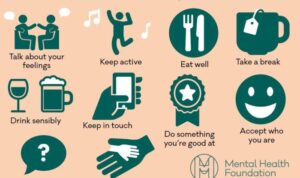Balanced Diet Tips, let’s dive into the key aspects of maintaining a healthy lifestyle through proper nutrition. From the importance of balanced meals to practical tips on achieving a well-rounded diet, this guide has got you covered.
Discover the secrets to a balanced diet that can lead to a happier and healthier you.
Importance of a Balanced Diet
Eating a balanced diet is crucial for maintaining overall health and well-being. It provides the body with the necessary nutrients, vitamins, and minerals needed to function properly.
Benefits of Consuming a Variety of Nutrients
Consuming a variety of nutrients through a balanced diet ensures that your body gets everything it needs to stay healthy and strong. Different nutrients play different roles in the body, and having a diverse diet helps cover all the bases.
- Proteins help build and repair tissues in the body, including muscles, skin, and organs.
- Carbohydrates are the body’s main source of energy, providing fuel for daily activities and bodily functions.
- Fats are essential for absorbing certain vitamins and protecting organs.
- Vitamins and minerals support various bodily functions and help prevent deficiencies that can lead to health issues.
Prevention of Chronic Diseases
A balanced diet can help prevent chronic diseases such as heart disease, diabetes, and certain types of cancer. By eating a variety of nutrient-rich foods, you can lower your risk of developing these serious health conditions.
Components of a Balanced Diet

Eating a balanced diet involves consuming a variety of foods that provide essential nutrients to support overall health and well-being. These essential nutrients include carbohydrates, proteins, fats, vitamins, and minerals, each playing a unique role in maintaining proper bodily functions.
Carbohydrates
Carbohydrates are the body’s primary source of energy, providing fuel for daily activities and bodily functions. Foods rich in carbohydrates include whole grains, fruits, vegetables, and legumes.
Proteins
Proteins are essential for building and repairing tissues, supporting immune function, and serving as enzymes and hormones in the body. Good sources of protein include lean meats, poultry, fish, eggs, dairy products, legumes, and nuts.
Fats
Healthy fats are important for brain function, hormone production, and the absorption of fat-soluble vitamins. Examples of healthy fats include avocados, nuts, seeds, olive oil, and fatty fish like salmon.
Vitamins
Vitamins are necessary for various functions in the body, such as supporting the immune system, promoting healthy skin and vision, and aiding in energy production. Different vitamins can be found in a variety of foods, such as vitamin C in citrus fruits, vitamin A in sweet potatoes, and vitamin D in fortified dairy products.
Minerals
Minerals play a crucial role in maintaining proper fluid balance, forming strong bones and teeth, and supporting nerve function. Foods rich in minerals include leafy green vegetables (calcium), nuts and seeds (magnesium), and lean meats (iron).
Tips for Achieving a Balanced Diet: Balanced Diet Tips
Eating a balanced diet is essential for overall health and well-being. Here are some practical tips to help you plan balanced meals, control portions, and incorporate more fruits and vegetables into your daily diet.
Planning Balanced Meals
- Include a variety of food groups in each meal, such as lean proteins, whole grains, fruits, and vegetables.
- Plan your meals ahead of time to ensure you have all the necessary ingredients on hand.
- Opt for healthier cooking methods like grilling, baking, or steaming instead of frying.
- Aim for colorful plates to ensure you’re getting a wide range of nutrients.
Portion Control and Moderation, Balanced Diet Tips
- Avoid oversized portions by using smaller plates and bowls to help control serving sizes.
- Listen to your body’s hunger and fullness cues to prevent overeating.
- Practice mindful eating by savoring each bite and avoiding distractions like watching TV or using your phone.
- Indulge in your favorite treats occasionally but in moderation to maintain a healthy balance.
Incorporating More Fruits and Vegetables
- Start your day with a fruit smoothie or add fresh fruits to your breakfast cereal or yogurt.
- Snack on raw vegetables with hummus or yogurt dip instead of processed snacks.
- Add extra vegetables to your main dishes, such as stir-fries, soups, and salads.
- Experiment with different cooking methods like roasting or grilling to enhance the flavors of fruits and vegetables.
Balancing Macronutrients
When it comes to maintaining a healthy diet, balancing macronutrients like carbohydrates, proteins, and fats is crucial for overall well-being. Each macronutrient plays a specific role in the body, and an imbalance can lead to various health issues.
Ideal Macronutrient Ratio
For a well-rounded diet, nutritionists often recommend a balanced ratio of macronutrients. A common guideline is to consume:
- Carbohydrates: 45-65% of total daily calories
- Proteins: 10-35% of total daily calories
- Fats: 20-35% of total daily calories
Remember, these percentages can vary based on individual needs and goals.
Effects of Imbalance
Consuming too much or too little of any macronutrient can have negative effects on health. Here are some consequences of an imbalance:
- Excessive carbohydrate intake may lead to weight gain and blood sugar spikes.
- Inadequate protein consumption can result in muscle loss and weakened immune function.
- High fat intake, especially from unhealthy sources, can increase the risk of heart disease and obesity.
Understanding Micronutrients

Micronutrients are essential nutrients required by the body in small amounts to function properly and maintain good health. They play a crucial role in various bodily functions and are important for overall well-being.
Examples of Essential Vitamins and Minerals
- Vitamin C: Found in citrus fruits, strawberries, and bell peppers, vitamin C is essential for a healthy immune system and skin.
- Iron: Sources of iron include red meat, beans, and fortified cereals. Iron is necessary for the production of red blood cells.
- Vitamin D: Sunlight, fatty fish, and fortified dairy products are sources of vitamin D, which is important for bone health and immune function.
Risks of Micronutrient Deficiencies and Prevention
Micronutrient deficiencies can lead to various health issues, such as anemia, weakened immune system, and poor bone health. To prevent micronutrient deficiencies, it is important to consume a diverse and balanced diet that includes a variety of fruits, vegetables, whole grains, lean proteins, and dairy products. Additionally, taking a multivitamin supplement can help fill any gaps in micronutrient intake.












